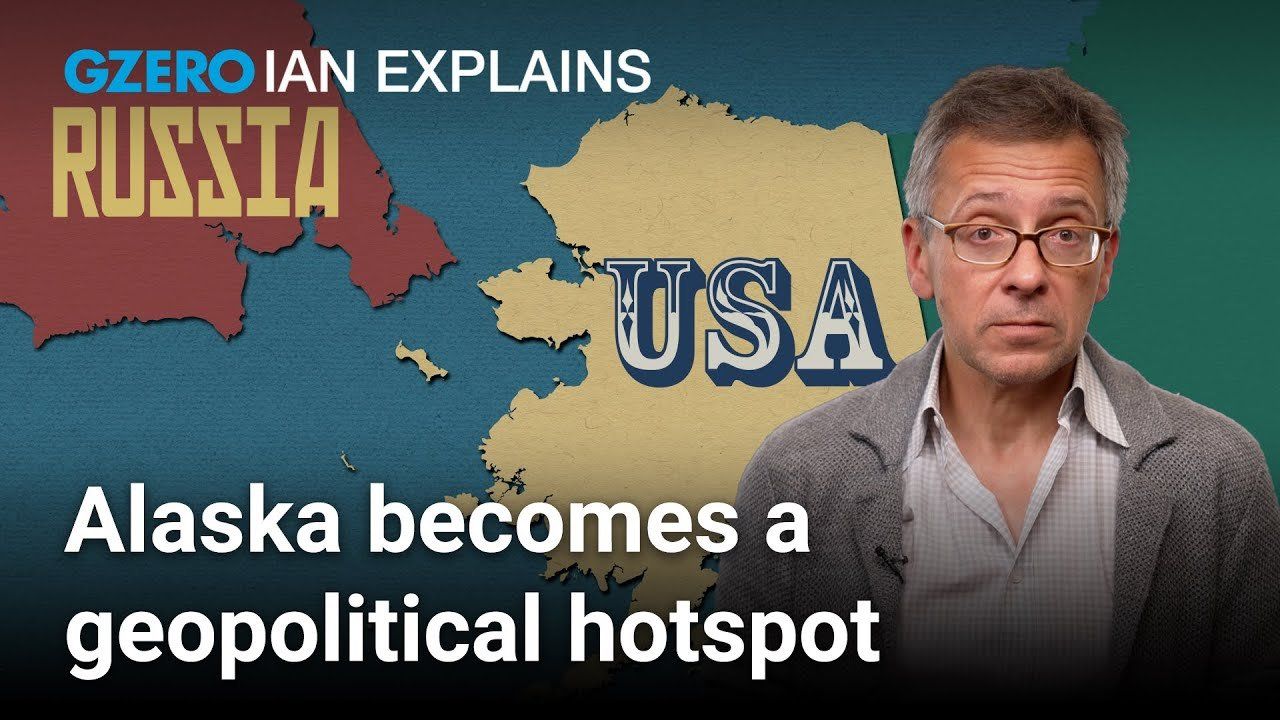August 10, 2024
Amid Russia's growing territorial aggression and a fast-warming Arctic, Alaska's physical place in the world has become more geopolitically relevant than ever. Alaska's northern coastline makes the US one of six countries with exclusive economic zones in the Arctic Circle. And while no country owns the North Pole—it isn't even land—it is constantly shifting sea ice, which is going to melt. But as that happens, the Arctic is opening up, and countries are now racing to lay claim to untapped deposits of oil, natural gas, and rare earth minerals, newly accessible shipping routes, and strategic military positions between North America and Eurasia.
Russia is winning by most metrics. The Russian government has more than three dozen polar icebreakers in its fleet, compared to two, not two dozen, two in the United States, giving it a strategic and operational advantage. Russia accounts for nearly half the Arctic population, more than half its coastline, and the Arctic industry. Moscow has spent years building up military outposts in the region as polar ice melts and its northern waters become exposed.
Russia's also increasing cooperation in the region with China, which sees the Arctic as an important part of its strategic economic and environmental interests. China is believed to be exploring a military presence there. NATO countries suspended political-level meetings with Moscow, and all international research projects have been put on hold. Until Arctic states can find a way to work together, rising tensions and a zero-sum game of territorial ambition will give the most remote part of the planet a lot more of our attention.
Watch Ian's interview with Governor Mike Dunleavy on the full episode of GZERO World with Ian Bremmer, the award-winning weekly global affairs series, airing nationwide on US public television stations (check local listings).
New digital episodes of GZERO World are released every Monday on YouTube. Don''t miss an episode: Subscribe to GZERO's YouTube channel and turn on notifications (🔔).
More For You
- YouTube
In this Quick Take, Ian Bremmer examines what may come next in the US-Israel war with Iran as the Trump administration signals significantly larger military operations ahead.
Most Popular
FILE PHOTO: Canadian Prime Minister Mark Carney and India's Prime Minister Narendra Modi shake hands before posing for a photo during the G7 Leaders' Summit in Kananaskis, in Alberta, Canada, June 17, 2025.
REUTERS/Amber Bracken/File Photo
Indian Prime Minister Narendra Modi and Canadian Prime Minister Mark Carney struck a series of deals during a meeting in New Delhi on Monday, including a 10-year nuclear energy deal under which Canada will provide India with uranium.
A satellite image shows black smoke rising and heavy damage at Iranian Supreme Leader Ayatollah Ali Khamenei's compound, following strikes by the United States and Israel in Tehran, Iran, on February 28, 2026.
Pleiades Neo (c) Airbus DS 2026/Handout via REUTERS
Supreme Leader Ali Khamenei is dead, the conflict is spreading, and US President Donald Trump still isn’t clear on who he wants to run Iran.
Shipping in the world’s most crucial oil chokepoint has nearly ground to a halt after at least four tankers were targeted in Iran’s retaliation to US and Israeli strikes on Saturday.
© 2025 GZERO Media. All Rights Reserved | A Eurasia Group media company.
